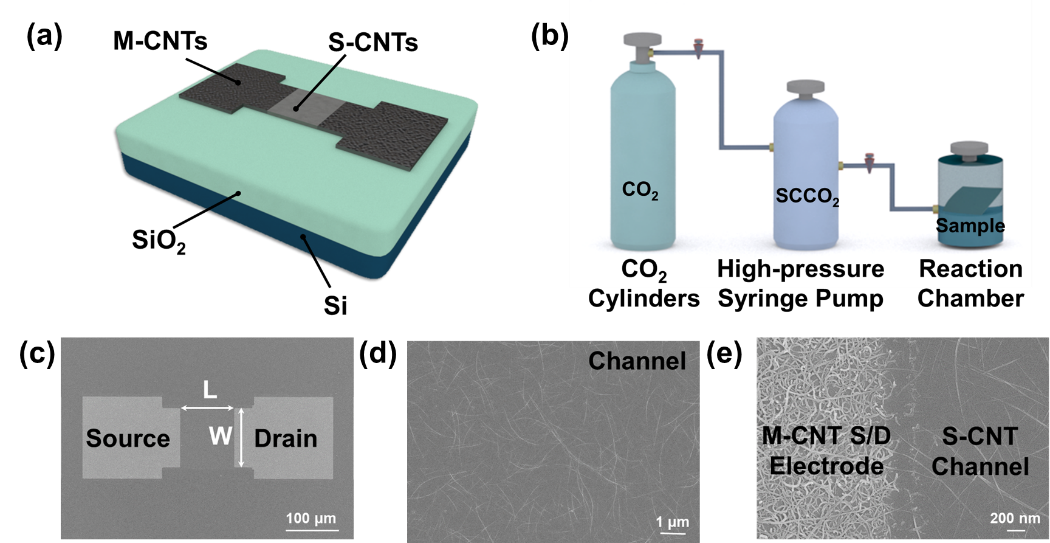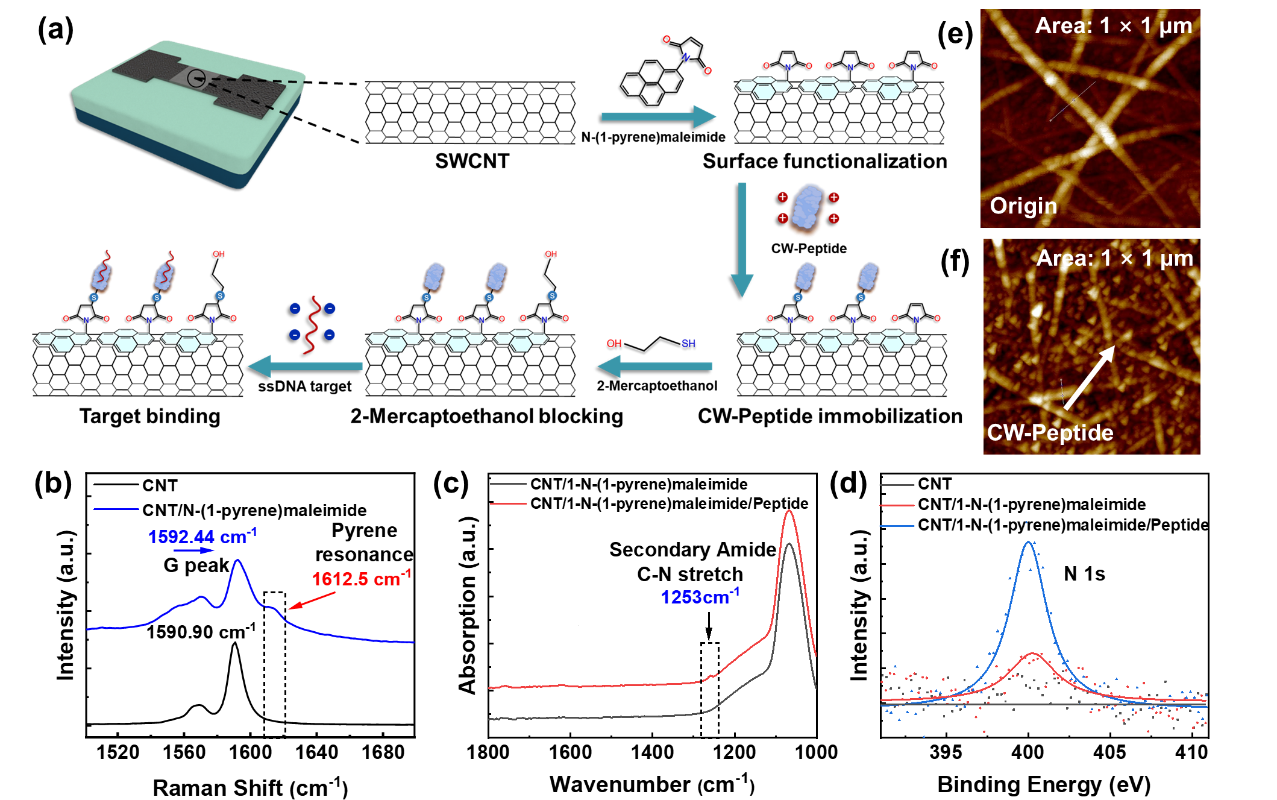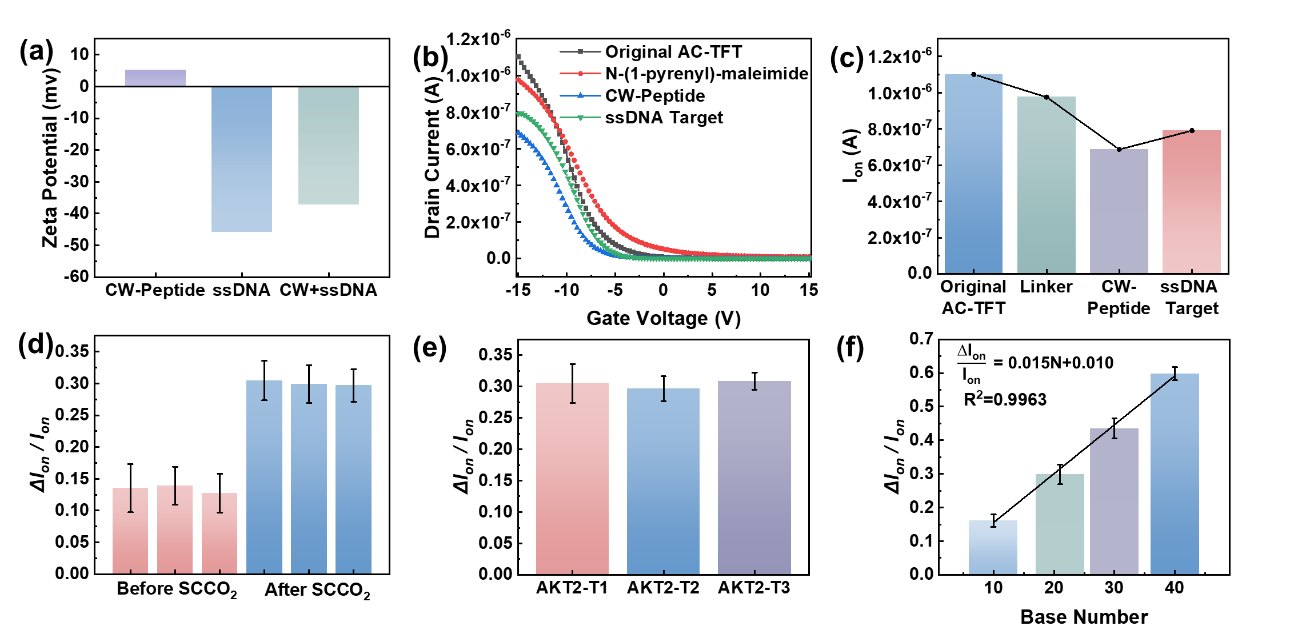近期,本课题组张敏老师和任沁琦同学分别以通讯作者和第一作者在材料科学领域国际知名期刊Carbon(SCI一区,2021年IF=9.594)上发表了题为“Low-temperature supercritical activation enables high-performance detection of cell-free DNA by all-carbon-nanotube transistor”的研究成果。
该工作由北京大学信息工程学院张敏副教授课题组和化学与化学生物学与生物技术学院李子刚教授/尹丰研究员课题组合作完成,信息工程学院硕士生任沁琦和化生学院博士后张亚萍为本文共同第一作者。
本文阐述了一种基于碳纳米管薄膜晶体管的生物传感器,借助CW多肽探针对核酸的无差异吸附特性,构建了无标记DNA的高灵敏度检测平台。并且经过超临界二氧化碳处理后,该传感器对三转移阴性乳腺癌相关基因AKT2的响应可增加至少114%,理论检测限可达42 fM。
Biosensors based on carbon nanotube (CNT) thin-film transistors (TFTs) have drawn intense interests for their exhibiting great potential in ultrasensitive and label-free DNA detection. However, the inevitable defects in the dielectric and channel of CNT-based TFTs may induce noisy or unreliable output signals. Here, we propose a low-temperature supercritical carbon dioxide (SCCO2) fluid activation method to enhance the performance of transistor-based biosensors. An activation model of SCCO2 treatment is proposed to elaborate that the SCCO2 treatment can repair the dangling bonds of SiO2 dielectric facilely and passivate the hydroxyl groups effectively. Furthermore, a cell-free DNA detection platform is built up based on all-carbon-nanotube TFTs (AC-TFTs) modified by the CW-Peptide probe. By adopting the SCCO2 treatment, the response of AC-TFT biosensors to AKT2 gene related to triple-metastatic negative breast cancer can be enhanced by more than 114% with high uniformity, and a broad detection range of six orders of magnitude is yielded with a theoretical limit of detection of 42 fM. Additionally, the response has a linear correlation with the length of DNA targets. The nondestructive and eco-friendly SCCO2 activation method provides a promising and universal strategy for achieving highly accurate and sensitive transistor-based biosensors in future clinical applications.
文章链接:


